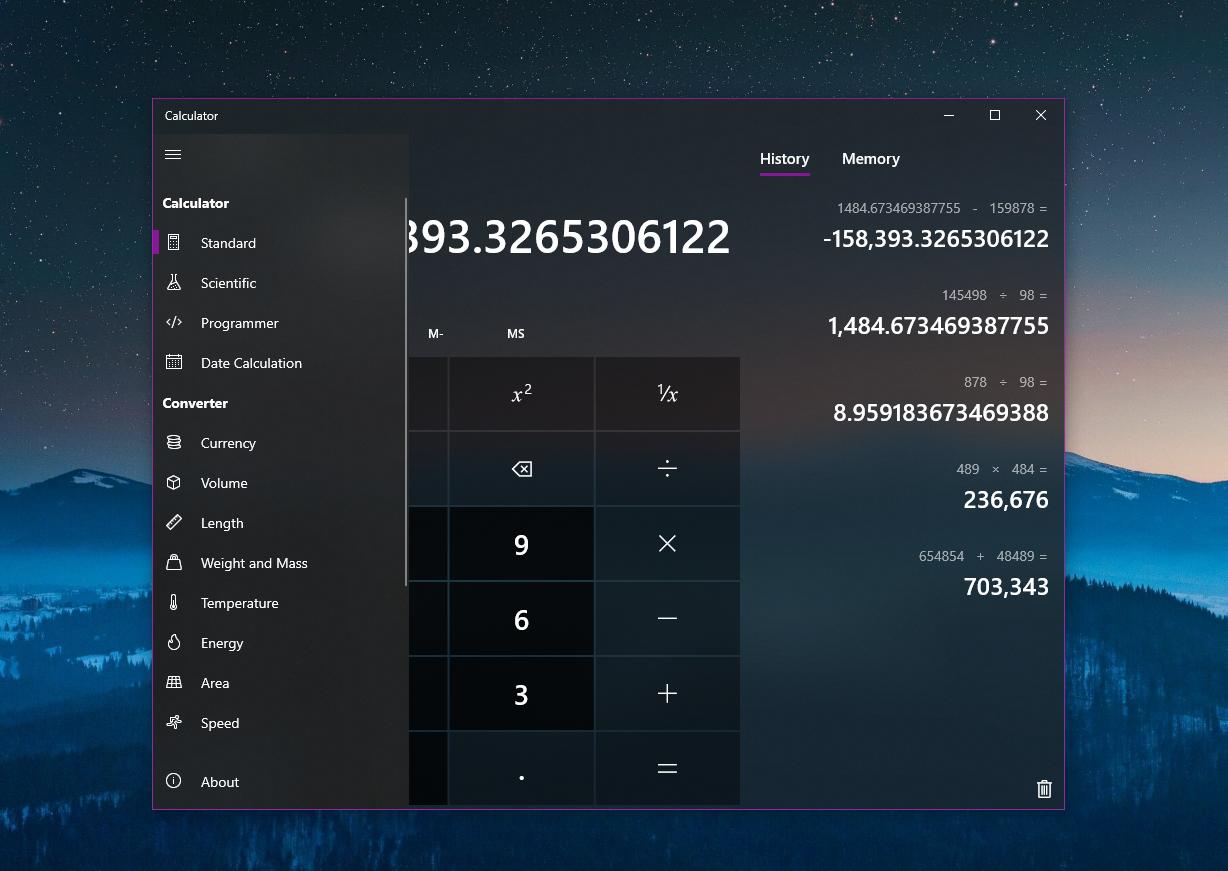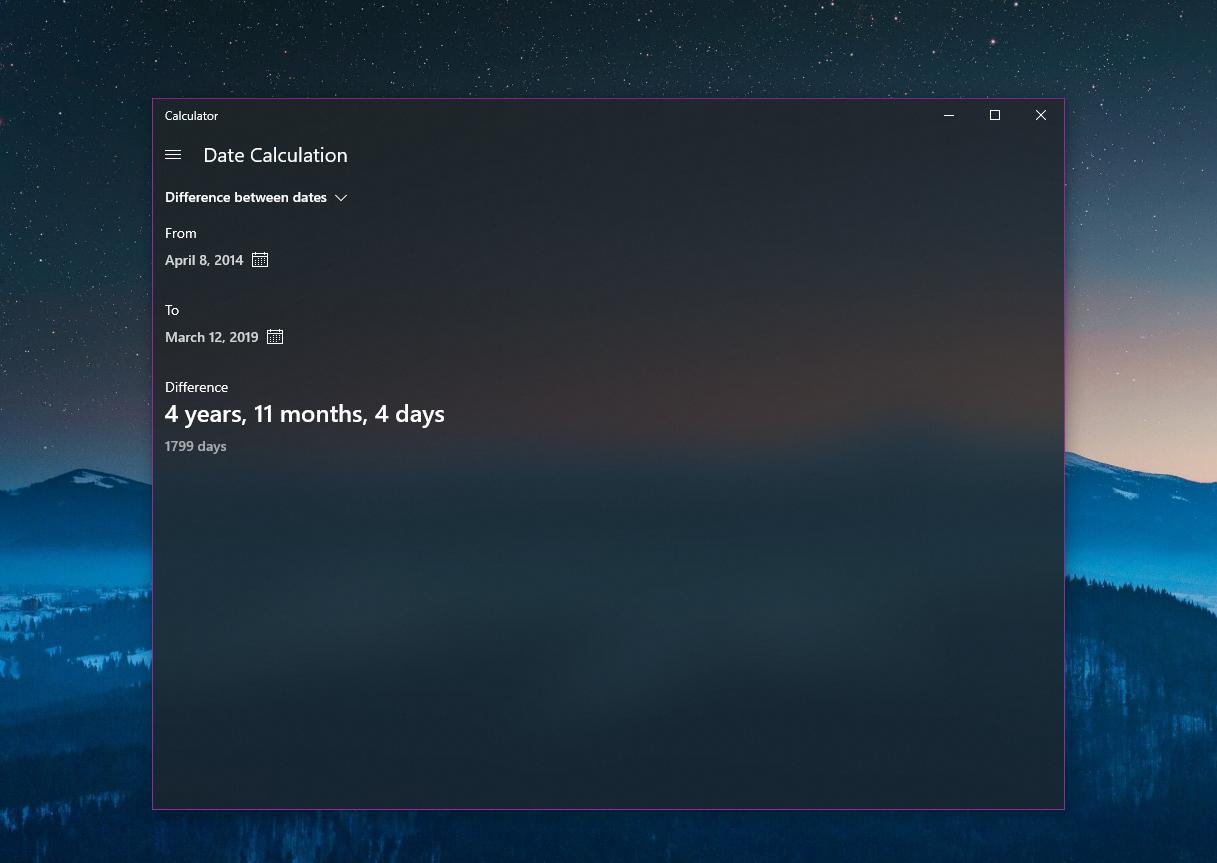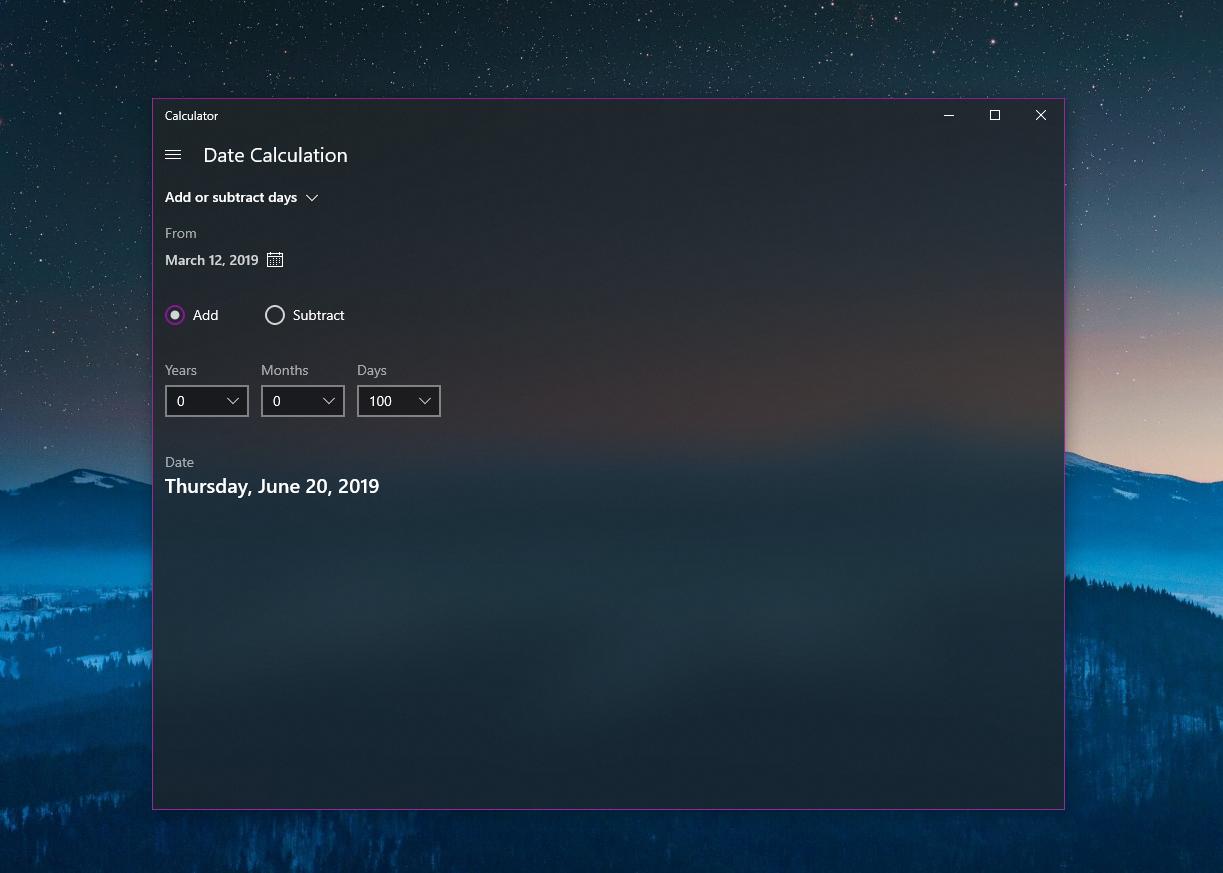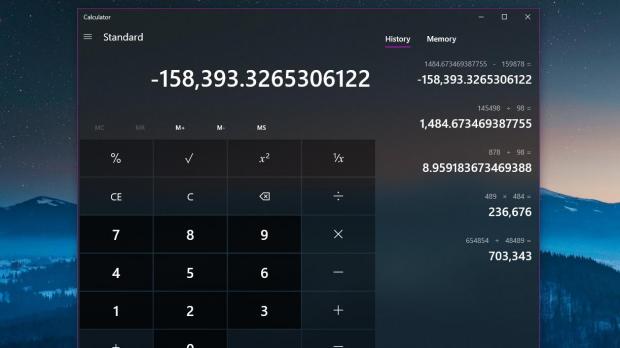The Calculator app is an essential tool in Windows 10, and while it previously served its purpose easily, Microsoft wanted to push things even further.
So with the release of new Windows 10 feature updates, Calculator evolved to become a much more advanced solution that can do a lot more than just basic math operations.
As a side note, the Calculator app looks set to improve even more in the coming years, as Microsoft has recently open-sourced the app, so developers can contribute with their own new features and work together with the software giant on additional updates.
Getting back to the current version of the Calculator app, Microsoft engineer Jen Gentleman recently highlighted one of the most useful features available on Windows 10, but which many users don’t even know it exists: date calculation.
If you’re wondering who needs to calculate dates, this comes in super-helpful especially when trying to determine the number of days between two dates. Also, the Windows 10 Calculator app lets you add or subtract days from a specific date, all from the same simple and clean interface.
First of all, you need to launch the Calculator, and pretty much everyone knows how to do this – just type Calculator in the Start menu, and that’s it. Next, go to the top left menu > Calculator > Date Calculation.
There are two options available in this menu, and they are called:
Difference between dates
Add or subtract days
First of all, you can calculate the difference between two dates. This requires you to provide the first and the second date, so for instance, if you want to determine how many days have passed since Microsoft pulled the plug on Windows XP on April 8, 2014, here’s what you need to do.
In the From field, you need to select April 8, 2014, and the To section select today, in our case, March 12, 2019. The Windows 10 Calculator app should then show the result, which for this example, is 4 years, 11 months, and 4 days, or 1799 days.
Tip: If you want to quickly jump to a specific year, don’t use the arrows in the selection screen, but click the date in the top left corner for easier selection.
The Calculator doesn’t yet allow you to determine the difference between two dates in hours, minutes, or other units.
The second feature allows you to add or subtract days, so you need to define the From date and then select what you want to do and define the number of years, months, and days to calculate. For instance, if you want to add 100 days to today’s date, just select today and check Add, and then input 100 in the Days field. When you’re done, the Windows 10 Calculator app automatically calculates the result, which in this example is Thursday, June 20, 2019.
Tip: You can enter bigger values, like 100, in any of the three fields by simply typing the number of the keyboard.
The Windows 10 Calculator won’t improve significantly in the upcoming April 2019 Update due next month, but on the other hand, as I said earlier, it should get much more substantial refinements once developers start contributing to the project on GitHub.
The app already comes with many more options than the previous versions, and you can use the Calculator for currency, volume, weight and mass, temperature, energy, area, and speed.
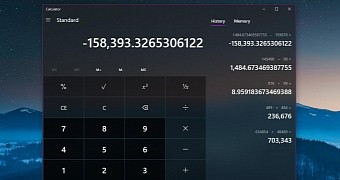
 14 DAY TRIAL //
14 DAY TRIAL // 